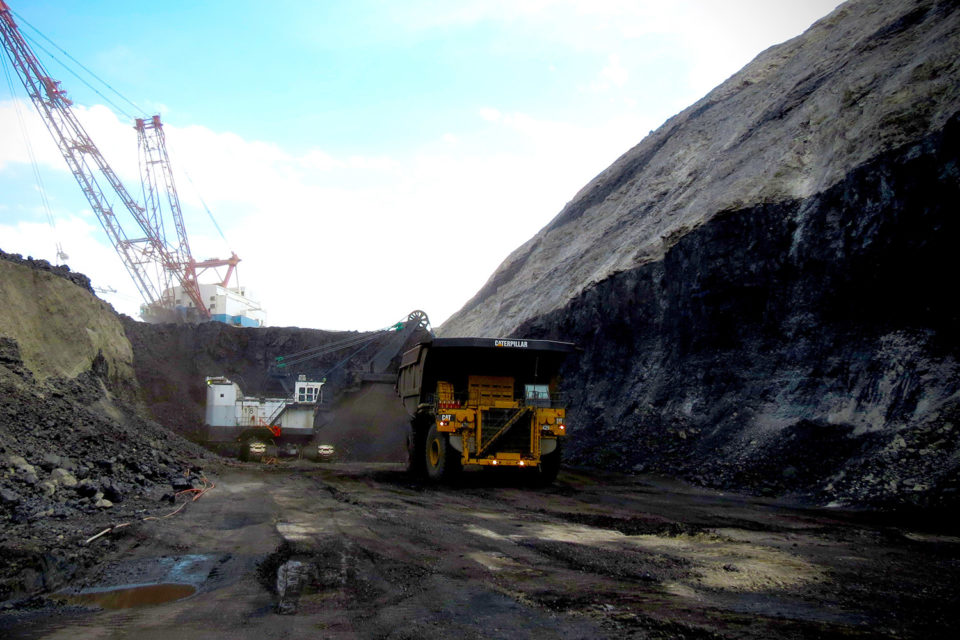Earning the Social License of Tomorrow in an Energy State

By Jessica Western, Kit Freedman and Selena Gerace, University of Wyoming
Introduction
Wyoming has long been a leading energy-producing state, ranking as the top U.S. coal producer since 1986 and among the top 10 states for crude oil and natural gas production throughout the past several decades. Energy-related mining and minerals extraction is the largest industry in Wyoming and for much of the last century production of these resources has fueled the state’s economy, employed thousands of workers at family-sustaining wages and paid energy-related royalties, severance payments and other taxes that have historically accounted for roughly two-thirds of Wyoming’s annual revenue.
More recently, Wyoming’s core fossil-fuel industries have declined due to a combination of new and disruptive technologies like hydraulic fracturing and wind energy, shifts in public policy towards low-carbon energy sources and changes in public perceptions about climate change. Wyoming is now at a crossroads, facing a huge budget shortfall as weaknesses in Wyoming’s economy in an even starker light. However, the concern for Wyoming’s economy was as evident in the pre-pandemic survey as it was in the Q-study conducted during the pandemic.
Study Design
The study consisted of two phases. In the first phase, researchers interviewed 10 key stakeholders in Wyoming’s energy industry to identify primary topics and questions for a statewide survey of residents. They then designed a survey to explore residents’ preferences regarding different energy types, the reasons for those preferences and their beliefs about the future of Wyoming’s energy economy. The survey was sent to 3,100 households in Wyoming, and resulted in 522 completed surveys from across all 23 Wyoming counties.
In phase two of the study, follow-up interviews were conducted with 24 individuals representing diverse energy-related interests in Wyoming, including people from industry, government, agriculture, conservation, recreation, higher education and utilities, as well as the 10 key stakeholders interviewed in phase one of the project.
Survey Results
Survey results indicated Wyoming residents support natural gas (83 percent), oil (71 percent), solar (69 percent), wind (66 percent) and coal (63 percent) energy production. Further, respondents indicated the need for more information regarding energy storage, uranium, nuclear energy, carbon capture and storage and rare earth elements.
Out of 14 values, respondents gave four the highest ranking: aesthetic value (73 percent), biological diversity (73 percent), recreation value (63 percent), and economic value (60 percent), followed by community value (59 percent), future value (57 percent) and historic value (52 percent).
Three themes emerged from this Q-study, each representing a different emphasis useful in understanding trade-offs and interests.
Theme one was the “renewable theme,” where renewable energy is strongly supported as are developments in technology and non-energy types of income, such as information-based industries. This theme’s participants are motivated by concerns about climate change and other environmental factors, and also the well-being of Wyoming workers and communities. They support conventional energy as a bridge to renewable energy and non-energy industries.
Theme two was the “economic theme,” which underscored concerns for Wyoming’s economy overall. This theme explored opinions of participants advocating for conventional energy, which they see as both part of Wyoming history and the strategic economic bridge toward other industries. Participants supported carbon capture and storage as a means to enhance oil recovery and to support coal operations, but also to reduce carbon in the atmosphere. In terms of enhancing the state’s economy, respondents considered it critical to pay attention to climate change. This group was also more open to nuclear energy and strongly supported the development and use of new technologies.
The third theme, the “quality of life theme,” emphasized quality of life in Wyoming. Considerations related to jobs, job security, health insurance, wildlife and reliable and cost-efficient energy delivery ranked highest. The quality-of-life theme participants did not favor any particular type of energy. They leaned toward different energy types but not at the expense of a high quality of life. They raised concerns that the cost of transitioning from conventional to renewable energy would be passed on to vulnerable populations. This theme was the most positive about nuclear energy.
Overall, survey respondents and Q-study participants agreed:
- Wyoming must use all the tools in its toolbox. There may be a small percentage of people with strong preferences for a particular energy type, but by far the majority want to look at all ways of boosting the energy economy and the economy in general.
- In Wyoming, climate change is generally accepted. Among the
Q- study participants, there was strong disagreement that climate change was a “hoax.” The interviews and the survey comments indicate that far from rejecting climate change, Wyoming residents generally feel that using it to an economic advantage –and for many also an environmental one – may benefit the state. - Wyoming should pay attention to what customers outside its borders are willing to pay for and why. Catering to those customers could improve Wyoming’s economy.
- There is a high level of interest in developing technologies or recruiting industries with technology that
can facilitate a more resilient and sustainable energy economy. - There is also a high level of interest in recruiting or developing non-energy related economic activities such as an information-based industry.
- There is an interest in more information regarding nuclear energy and carbon sequestration. Because Wyoming residents want available all tools in the toolbox, they are not willing to throw out any ideas, but they need more information on these subjects before they will grant a higher level of social license.
- There is a need to decrease impacts on wildlife.
- The retention and creation of jobs and job security is a top priority.
Study Results
- A comprehensive energy strategy for Wyoming: The Wyoming public provides leaders with the social license to activate an energy strategy that considers quality-of-life factors, improves the economy and benefits the state’s environment. Although the state has historically pursued various energy planning avenues, Q- participants believe a more comprehensive plan is necessary. Currently, the Wyoming Energy Authority is working on exactly that. From the responses in the Q-study, participants in Wyoming’s energy discourse want more risk taking, more support for new energy approaches and a more outward-facing approach to new technologies, new ideas and needs in other states. In all three themes, frustration among Q-study participants was evident in the lack of development of a “comprehensive energy strategy”, as one participant called it. That would support all forms of energy, and be in line with preferences and demands of Wyoming residents and customers outside its borders, with goalposts. As long as this results in jobs and a continued strong energy identity for Wyoming, the survey indicates the public would be supportive.
- We need to talk: There is a need for more information to the Wyoming public about technologies and trade-offs. The trade-offs are reflected in the study’s three resulting themes; for example, an increase in renewable energy, but at what cost? Carbon capture and storage is to some extent supported by Q-participants, but in the renewable theme questions are asked whether this will really reduce carbon dioxide levels or only boost oil production. There is also interest in technologies such as carbon capture and storage and even nuclear energy, but the majority of the public is not familiar enough with these subjects to meaningfully evaluate the trade-offs. More opportunities for information sharing and dialogue around these technologies and the trade-offs would likely boost the level of social license for them.
- Wyoming values: Although clearly energy and economy are closely tied in the state, and survey results show economic and community values ranking high, it was aesthetic and biological diversity values that ranked highest. Wyoming’s beautiful landscapes were often referenced as a reason to oppose wind energy. The importance of wildlife corridors was equally often referenced as a reason to oppose oil and gas activities. Respondents in both parts of the study made clear their passion for Wyoming’s natural amenities and attachment to place. When considering trade-offs, these values will be fundamental to any deliberations in Wyoming.
- Change is gonna come: Generally, the public largely supports energy production related to oil/coal/gas and renewables, with the perspective that the current energy portfolio will change. Both survey and Q- study participants have concerns that external forces are changing Wyoming’s economic activities and income. The survey results indicate clearly that energy activities in Wyoming are not an “either/or” issue between conventional and renewable energy. Instead, the survey responses indicate there is strong support for gas, oil, renewables and coal, in that order. The greater percentage of survey respondents and almost all Q-participants acknowledged that change is happening and Wyoming needs to prepare for the changes rather than “just let them happen to us”, as one Q-participant put it.
Read the Full Study
The full study, “Social License for Wyoming’s Energy Future: What Do Residents Want?” is available at https://bit.ly/2LSC0jP.
Jessica Western is a research associate and adjunct professor, and Kit Freedman is project and outreach coordinator, at the University of Wyoming’s Ruckelshaus Institute of Environment and Natural Resources. Jessica is also founder of Big Goose Creek Resolutions. Selena Gerace is an assistant research scientist in the Center for Energy Regulation & Policy Analysis at the University of Wyoming’s School of Energy Resources.








